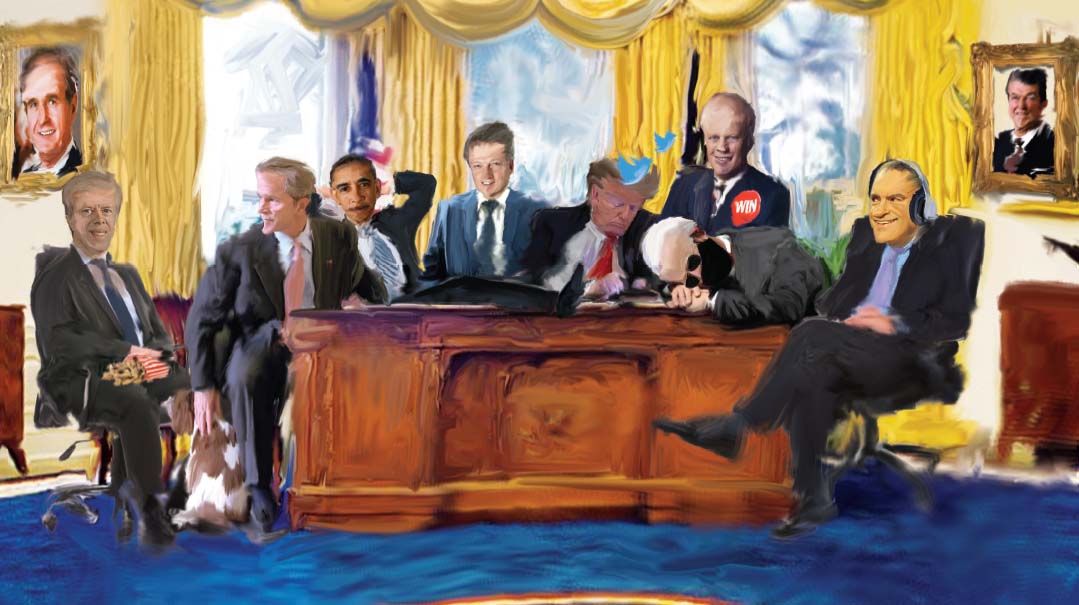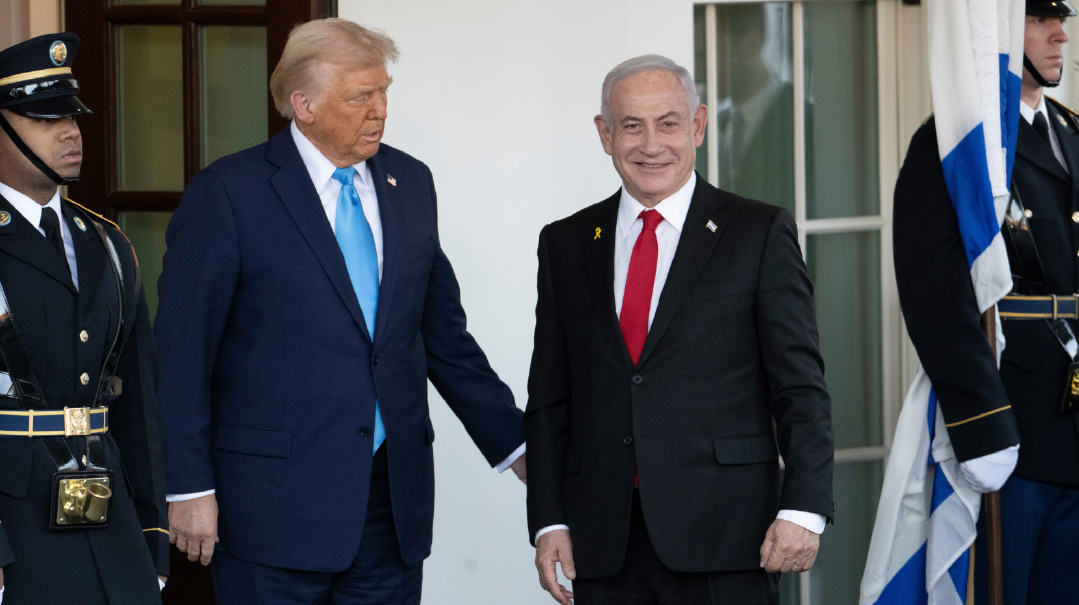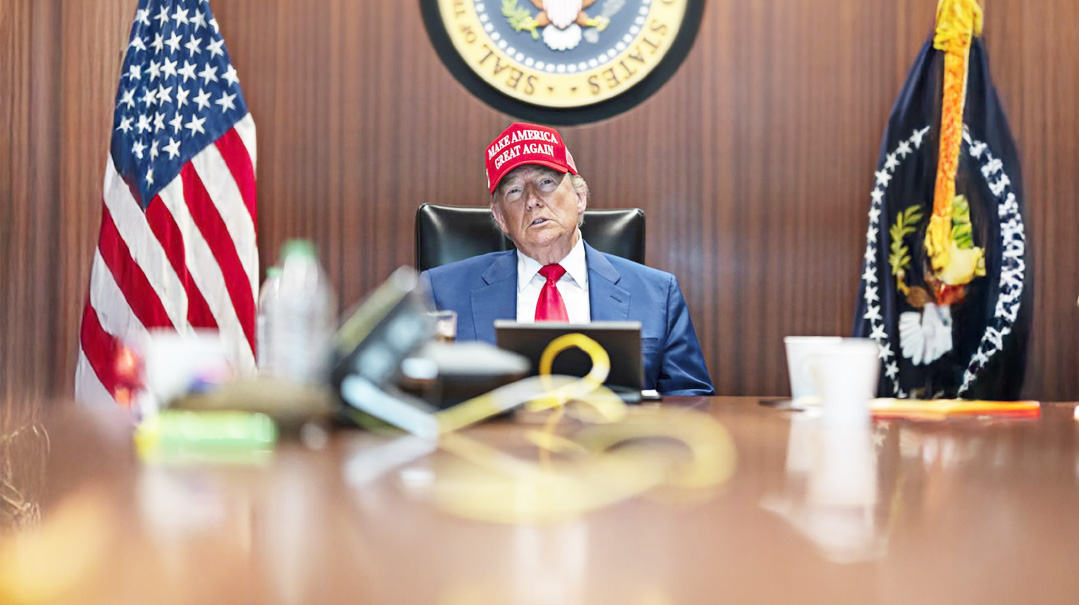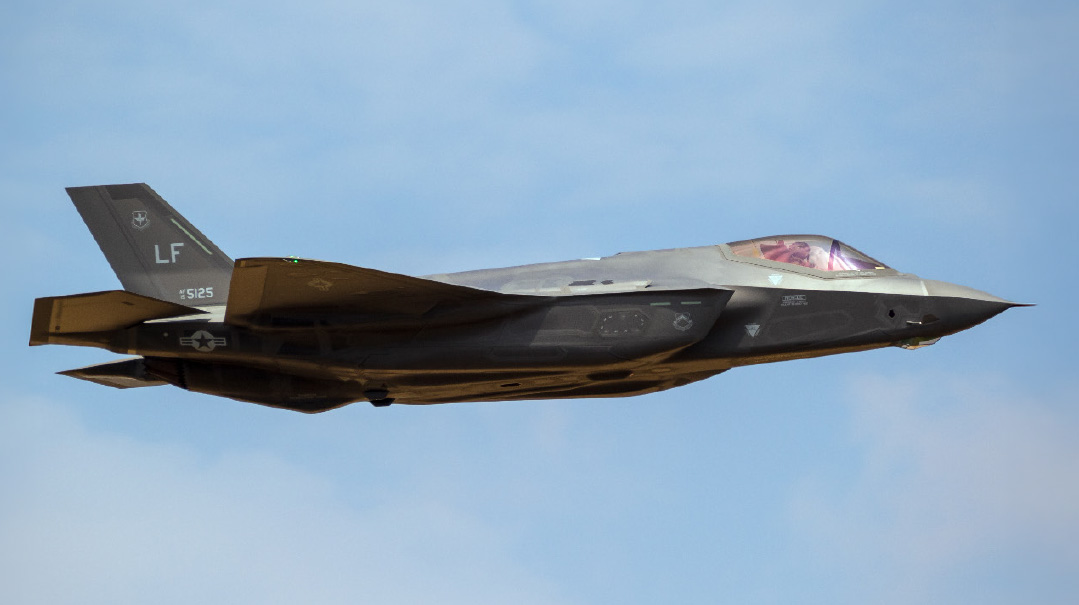Fading Prestige

President’s Day hasn't given us much reason to celebrate lately

Illustrations: Stav Golan
America commemorates President’s Day next Monday. The hybrid holiday that replaced Washington’s and Lincoln’s birthdays is now another pretext for a three-day weekend and retail sales sprees. For Americans who lament that the good old US isn’t quite what it used to be, much of the blame can be placed on the Oval Office desk, where the buck is supposed to stop.
The presidency of the United States is undoubtedly still the most prestigious elected position in the world, and certainly the most challenging. Unfortunately, the vast majority of its recent occupants all crafted major decisions that have contributed to the erosion of American power, domestically and internationally.
Many were undeniably tougher on Israel compared to the kid glove treatment they afforded to Arab nations, a foreign policy mistake that deserves further examination.
Precious few left office with their reputations intact. We can begin tracing the decline in the prestige of the office with President Nixon, who was the first sitting president to resign in disgrace. Of the nine presidents who succeeded him since 1974, two faced impeachment proceedings, and a total of four incumbents were denied a second term. Some presidents debased the office by their behavior, while almost all left the American people disillusioned about their elected officials. The following is a concise guide to the long slide of the past half-century.
Richard Nixon
37th president
(January 1969 to August 1974)
For a foreign policy hawk who talked tough against Communism, Nixon walked a different walk. His greatest foreign policy accomplishments included détente with the Soviet Union, which led to arms control agreements, and opening trade relations with China. Nixon extricated America from the unpopular Vietnam War. He authorized resupplying Israel with arms during the Yom Kippur War, even if it took his Machiavellian secretary of state, Henry Kissinger, to convince him.
Eventually, Nixon did himself in. Operatives working on his 1972 reelection campaign were arrested for burglarizing Democratic National Committee headquarters at the Watergate complex where they were digging for dirt on Nixon’s political opponents. Instead of firing the scoundrels, Nixon covered up for them. Charged with obstruction of justice, Nixon resigned in disgrace in August 1974, rather than face certain impeachment.
Perhaps Nixon’s most consequential and controversial decision was removing the US dollar from the gold standard, beginning a new monetary era of floating exchange rates. Economists still debate that decision, with some still blaming Nixon’s decision for the dollar’s long-term drop in both value and purchasing power, which they contend marked the beginning of the end of America’s financial hegemony over the Western world.
Gerald Ford
38th president
(August 1974 to January 1977)
Nixon’s replacement, Gerald Ford, was a decent man who wasn’t quite ready for prime time. Exactly one month after taking office, Ford pardoned Nixon, setting off a political inferno from which he never recovered. Conspiracy theories thrived back then too. Americans assumed that Nixon, nicknamed Tricky Dicky, had cooked up a deal with Ford, agreeing to relinquish the Oval Office to Ford in return for the pardon. Ford’s credibility took a major hit, and his public approval rating dropped by half.
With inflation raging at 9%, Ford pinned a badge to his jacket lapel with the letters WIN — for “Whip Inflation Now.” Pundits savaged him for resorting to gimmickry instead of policy prescriptions. The media was cruel to Ford, a former college football star, reporting his every slip on a ski slope or every time he bumped his head somewhere. Ford angered New Yorkers for his initial refusal in 1975 to bail the Big Apple out of bankruptcy, which gave rise to the still famous Daily News headline, “Ford to City: Drop Dead.”
At one point, he threatened Israel with a “reassessment” of relations before relenting and even increasing military aid. While Ford left the economy in better shape than he found it, history remembers Ford as an unelected president whose brief term was tumultuous and mistake-prone.
Jimmy Carter
39th president
(January 1977 to January 1981)
Carter was a peanut farmer, born-again preacher, and one-term Georgia governor who soon proved he was out of his league in Washington. Carter quickly shelved a campaign pledge to cut government bureaucracy by slashing the number of federal agencies from 200 to 20 when he saw it wasn’t viable. Speaking to national audiences, his toothy grin offset by cold steel-blue eyes, Carter lacked “Southern charm.” He tried to recreate FDR’s fireside chats, wearing a cardigan sweater to generate the warmth he naturally lacked.
Carter’s major blunder was his 1979 “national malaise” speech. Without actually using that term, Carter called out Americans for a universal erosion of confidence and self-doubt, without reckoning that Americans were the ones who expected him to do something about spiking oil prices, 15% inflation, and 18% interest rates.
On the plus side, Carter brokered the Camp David peace treaty between Israel and Egypt, but his selective application of human rights as the litmus test for US foreign policy ultimately weakened America. Carter pressured allies and appeased enemies. He threw the Shah of Iran under the bus. He sat by passively as radical Muslims seized power in Iran. The mullahs paid Carter back by capturing the US embassy in Teheran and holding 52 Americans captive inside for more than a year until Carter left office. Carter’s naïveté and weakness are reasons Iran turned into the world’s largest and most ruthless state sponsor of terror.
Ronald Reagan
40th president
(January 1981 to January 1989)
Reagan defeated Jimmy Carter in a landslide, winning 44 states. Nicknamed the “Great Communicator” for his powers of persuasion, Reagan spoke unpretentiously, but knew how to wield power. He recruited a cadre of Southern Democrats known as the Boll Weevils to vote for an economic plan that critics (including his own vice president) labeled “voodoo economics.” The plan relied on a new economic theory called supply-side economics, which assumed large tax cuts would stimulate the economy, providing enough tax revenue to simultaneously finance Reagan’s ambitious military buildup.
Reagan was half right. The economy recovered, but national debt tripled in his eight years. In allowing that to happen, Reagan spoiled the GOP’s reputation as the party of fiscal responsibility. The administration’s slipshod deregulation of the savings and loan industry led to the collapse and closure of more than 1,000 S&Ls nationwide. The stock market crash in 1987 also occurred on Reagan’s watch.
Reagan often played hardball with Israel — criticizing Israel’s attack on Iraq’s nuclear reactor and its invasion of Lebanon. His biggest unforced error was his decision a month before he left office to open talks with the Palestine Liberation Organization, reversing a longstanding policy, and ultimately granting both American and international legitimacy to a terrorist organization whose charter calls for the destruction of Israel.
George H.W. Bush
41st president
(January 1989 to January 1993)
On paper, Bush was America’s most qualified president, with experience as a Navy pilot, Reagan’s vice president, CIA director, ambassador to the UN and China, and serving in Congress. Bush displayed true global leadership, assembling a coalition in the 1991 Gulf War to force Iraq to withdraw from its conquest of oil-rich Kuwait. Bush’s approval rating swelled to 89% following America’s convincing military victory, but plummeted a year later to 29% amid another recession.
Bush will forever be remembered for violating his campaign pledge, “Read my lips, no new taxes,” when he raised tax brackets to reduce the budget deficits he inherited from Reagan. Bush also angered taxpayers with his $124 billion bailout of the savings and loan industry. The “too big to fail” concept makes sense to Washington elites, but not to the average American, who doesn’t understand why the banker who issued his risky loan gets bailed out, but he has to keep paying.
Bush and his secretary of state, James Baker, were notoriously tough on Israel. Baker was known for his famous taunt to Prime Minister Shamir: “Here’s the White House number, call us when you’re ready for peace.”
While Bush faced a tough reelection battle, which included third-party candidate H. Ross Perot, political scientists blame him for conducting a lackluster campaign. Once Clinton beat Bush, his victory set the stage for what has turned into three decades of Democratic Party dominance in both East and West Coast states in presidential and Congressional races.
Bill Clinton
42nd president
(January 1993 to January 2011)
Twelve years after the Jimmy Carter train wreck, Americans were finally ready to trust another Southern Democrat. Bill Clinton was a slicker version of Carter and much more of a people person. Clinton branded himself as a “new Democrat” who would continue to spend on vital social programs while constraining the party’s bent toward profligacy. His welfare reform that empowered states, instead of the federal government, stands out as one of his greatest accomplishments. When Clinton left office, the federal budget was running a surplus.
Clinton brokered the ghastly Oslo Accords, which ushered in a decade of terror and entrenched the Palestinian Authority in Judea, Samaria, and Gaza. He pressured Binyamin Netanyahu to cede parts of Chevron, and almost charmed Ehud Barak into handing over control of Jerusalem’s Old City to the PA.
Clinton’s foibles and unfaithfulness proved to be his undoing. The House impeached him in 1998 for lying under oath and obstruction of justice. Even though the Senate acquitted him, his behavior disgraced the nation’s highest office. In the long term, Clinton’s aggressive expansion of NATO eastward into Poland, Hungary, and the Czech Republic did little to enhance US security. It only served to make Russia more paranoid that the West was out to get them, a sentiment that contributes to Vladimir Putin’s military adventurism that now poses a threat to European security.
George W. Bush
43rd president
(January 2001 to January 2009)
The Bush-Gore election is the root cause of today’s toxic political atmosphere. In the first disputed election of this century, the Supreme Court stepped in, effectively awarding Florida’s electoral votes to Bush, and sending Al Gore and Joseph Lieberman — who would have been America’s first Jewish vice president — to defeat. Gore conceded as a good sport should, but most Democrats were far less gracious, questioning Bush’s legitimacy, just as many Republicans question the validity of Biden’s victory to this day.
Bush inherited a booming economy and budget surplus from Clinton, but the 9/11 terror attacks just eight months into his term exposed a vulnerability that America never saw coming — that they had bitter ideological enemies in the world who targeted the nation’s center of economic and military power. In response, Bush launched a war on terror that shows little sign of winding down. The war costs, combined with Bush’s tax cuts unaccompanied by spending cuts, doubled the national debt to almost $11 trillion in eight years. The housing bubble burst on Bush’s watch, washing major banks and brokerage firms down the drain.
Although Bush deserves credit for shifting US policy on settlements, saying any Israel-Palestinian deal must take “facts on the ground” into consideration, Bush restrained Israel from retaliating with overwhelming force against Hezbollah during the Second Lebanon War. Once Hezbollah lived to fight another day, Iran rearmed them to the teeth, and now both Hezbollah and Iranian troops are embedded along Israel’s borders.
Barack Obama
44th president
(January 2009 to January 2016)
Obama made history, becoming America’s first African-American president. He could have seized the opportunity for racial healing, but instead, Obama’s language was coded and divisive. Writing for the National Review, pundit David Harsanyi put it succinctly, lambasting “Obama’s grating habit of turning every tragedy into a sermon about our supposed collective failings,” and taking good-faith disagreements on issues such as gun control, immigration, climate change, and inequality and imbuing them “with a kind of spiritual certitude that justifies circumventing debate.”
Hans von Spakovsky of the Heritage Foundation also noted Obama’s “steady stream of false claims that America was an inherently racist society with a biased judicial and law enforcement system. Obama rekindled a racial divide that had been steadily disappearing in American society.” Lest you think the critique was confined to right-wing pundits, the left-leaning Brookings Institution polled some 300 political scientists who found Obama tied for 12th on their list of the most divisive American presidents.
Obama’s presidency failed in many other respects. National debt also nearly doubled to $20 trillion during his two terms. His signature legislation — the Affordable Care Act, a.k.a. Obamacare — proved to be anything but affordable as it took both higher premiums and taxes to fund it.
Although US armed forces caught and killed Osama bin Laden, the main perpetrator of 9/11, on Obama’s watch, the nuclear deal he pursued and signed with Iran in 2015 didn’t stop Tehran from developing nuclear weapons and remains a major irritant in US-Israel ties.
Donald Trump
45th president
(January 2016 to January 2021)
I’ll never forget the look of incredulity on the face of Chief Justice John Roberts when he swore Donald John Trump into office. It’s as if he was saying, “I can’t believe this is happening to me.” Yet Trump pulled off the impossible, transforming “the Donald” from a real estate mogul and reality television star into President Trump.
He never stood a fair chance from day one with a hostile and biased media, and an unfriendly Congress that impeached him twice, but Trump could be his own worst enemy. Unlike Ronald Reagan of great communicator fame, Trump’s incessant Twitter usage to hurl insults and intimidation cost him a chance to build a broader base. Trump clearly understood the risks of radical Islam and unbridled immigration and was willing to take strong action against them, even at the risk of drawing the wrath of liberal elites. His support for Israel is well-known and will prove to be his greatest achievement.
As veteran Middle East analyst Aaron David Miller pointed out, Trump swapped the two-state solution with a “22-state outcome,” known as the Abraham Accords, which would have blossomed given one more term. Alas, it wasn’t meant to be. The January 6 riots fell far short of the “insurrection” that CNN calls it, but the fact that a sitting president left no stone unturned in trying to overturn an election whose results were certified in all 50 states left a long-term stain on the presidency. Trump’s claims of voter fraud still reverberate, and many Americans will never trust the declared results of any close election, ever again, especially if their candidate lost.
Joe Biden
46th president
(January 2021 to present)
It’s too early in the game to analyze the Biden presidency, but one observation that can already be made is that Biden projects the image of a feeble president, causing great damage to America’s standing in a world where many nations are run by ruthless autocrats. His scripted news conferences, peppered by occasional flashes of temper, further debase the office.
Foreign nations may not have loved Trump, but they feared him. No one seems to be afraid of Biden. China is leveraging that weakness to encroach on America’s image as the world’s only superpower, which doesn’t seem to hold true anymore. Russia’s Vladimir Putin has embarked on what will probably turn out to be an extra-inning game where he flexes his country’s military muscles to see what he can get away with, or what concessions he can pry. Rogue nations such as North Korea and Iran have three more years in which to take advantage of American vacillation and weakness. It’s not a pretty picture.
(Originally featured in Mishpacha, Issue 899)
Oops! We could not locate your form.






